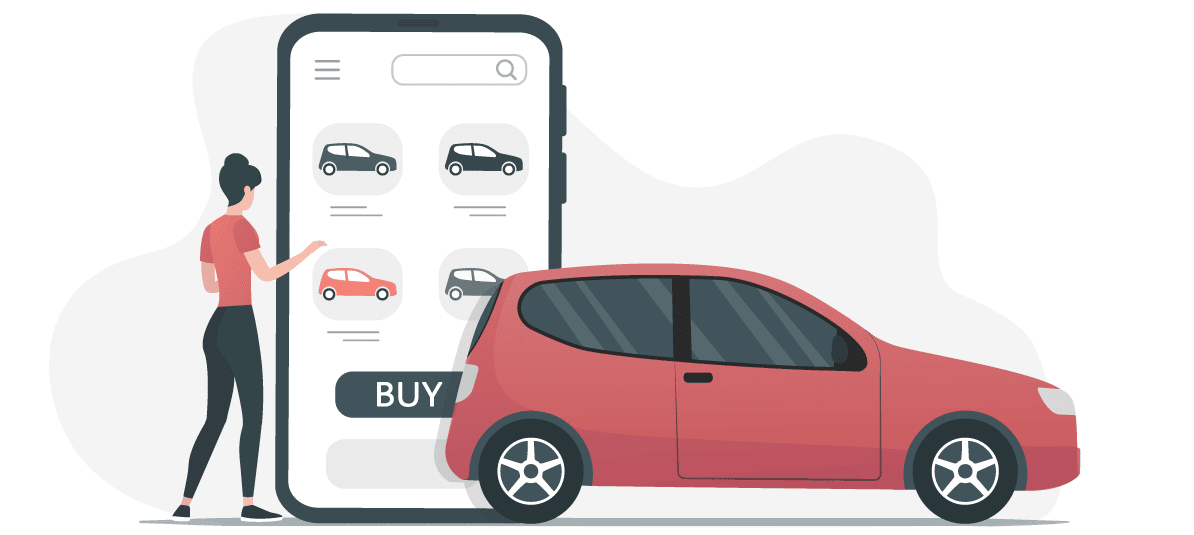According to data from the Tax Authorities, the average cost of a new car in Spain is 22,750 euros. At that price, the first question you should ask yourself is not which car to buy, but whether you really need to own a car.
And the fact is that a car represents a significant financial outlay on an asset that will depreciate between 10% and 20% in the first year after leaving the dealership. In other words, looking at it strictly as an investment, you are allocating your money to something that will be worth less money year after year.
How much does it cost to own a car?
On top of this, it is an object that will cost you money year after year. Do you want to know how much we are talking about? Here is a summary:
- Car insurance. You are obliged to insurance your car, and the price will depend a lot on your circumstances as a driver (age, experience, where you live, etc.), the vehicle itself and the type of insurance you choose. At seguros.es they estimate that insurance costs range from 130 to 475 euros per year on average. If you want to get a more accurate idea, you can find several price comparison sites on the internet.
- Taxes, which in Spain is the famous Impuesto de Vehículos de Tracción Mecánica (IVTM) and which depends on the horsepower of your vehicle. Road tax will cost between 20 and 270 euros.
- Servicing and MOT . The price of an MOT, the compulsory vehicle inspection, is not set, but can be as high as 50 euros. Your car is exempt for its first 4 years, but after that you will have to have it done every two years, and annually once it is 10 years old. To this you must add the maintenance and servicing, which are closely linked to how much you use the car. Each service will cost between 100 and 300 euros, depending on the mileage.
- Conventional fuel or electric? In the current environment we find ourselves in, with petrol and diesel costs skyrocketing, fuel costs are around €1,200 per year for private individuals. Meanwhile, the fleet of hybrid or electric vehicles is growing, but it is not yet significant enough to provide reliable figures on the energy consumption associated with this type of vehicle.
- Parking, if you need a garage for your car. What if you already own one? From a technical standpoint, you have to weigh up the opportunity cost of not renting it out. In other words, how much you would lose by not renting it out and using it for your own car.
- Breakdowns. Finally, you should not forget about breakdowns, an expense that is difficult to quantify, but one that should be taken into account.
The sum of all these expenses will be your annual transportation budget, which with the data we have discussed so far can range roughly between 1,500 and 2,400 euros per year.
To adjust the figure even further, you can also divide the purchase price of the vehicle by 13, which is the average life span of a car in Spain. With our earlier example (22,750 euros), we are talking about 1,750 euros more for your transportation costs. If you decide to finance your car, the loan installment should show you similar costs.
Well, let’s assume that owning a car costs an average of 3,600 euros. That is your starting point to find out if, from a financial point of view, owning a car is worthwhile.
And the key to making the decision is to see how much you actually use your car and what your alternatives are if you don’t have your own vehicle, as well as the cost of each of those. Let’s take a look at them!
- Public transport. The cheapest option. In fact, if you have already been using this as an alternative to a car, it is easy to manage without a vehicle.
- Carsharing, a very trendy option in big cities. This basically consists of renting a car for minutes or hours through an app. These vehicles, which also promote sustainable mobility, will give you the flexibility of having a car when you really need it. The cost of the service varies, but it ranges from 0.17 euros per minute to 49 euros for a specific day, to which you may have to add insurance. Here you can see what carsharing insurance covers.
- Other urban mobility options include electric scooters, bikes and motorcycles. Although they are not quite the same as a car, they can be adjusted to what you need depending on the distance you need to travel.
- Cabs or vehicles for hire: The classic alternative to the car. According to the calculations of Xataka, with what it costs to own a car you can take about 200 cab rides a year.
- Sharing or renting a car for trips. Big trips are the clearest sticking point when it comes to determining whether or not you need a car. As a general rule, if you are going to travel a lot, owning a car can pay off financially and, especially, from a convenience perspective. If you don’t own your own car, there are alternatives such as renting a car for your trips (the cost is high) or sharing a car for long distances through apps like Blablacar.
In the end, it is a matter of thinking about how you will actually use your car and making a decision based on the numbers and your preferences. For example, if your daily life is very urban, you move around the city and there are car sharing solutions in your city, maybe a car is not for you.
However, if you also take trips to the countryside or to another region to see your relatives, then having a car begins to be advantageous. In fact, the more people you travel with (a family with two children, for example), the more a car will be worth it, even if it is only for long trips.
Okay, I need a car on a full-time basis, what are my options?
You’ve crunched the numbers and it’s clear that you need to have a car for yourself. Should you rush to the car dealer? Not necessarily. Buying a car is just one of the alternatives available to you.
Instead of purchasing a car, you could rent one through leasing. With leasing you rent the car for a limited period of time, usually between 4 and 5 years, in exchange for a monthly fee.
This fee usually includes, in addition to being able to have your own car:
- Vehicle insurance.
- Maintenance and servicing.
- Any repairs that are needed, unless the breakdown is due to your negligence.
- Car taxes.
In summary, it includes practically everything you would pay to own a car apart from the fuel and parking.
Of course, when it comes to working out the value of a leased car, there are two things you should keep an eye on. The first is what is included in the car insurance and the second is the mileage limit, because all contracts include a set figure.
How can you decide between buying and leasing?
There is a five-step approach to choosing which model is right for you.
- Check the cost of leasing the car you want.
- Check the cost of the car if you were buying it new.
- Calculate the costs for that vehicle each year. This includes the concepts that we detailed above: insurance, maintenance and servicing, tire changes and taxes.
- Calculate how much you could sell the car for after four or five years (the length of the lease).
- Crunch the numbers. Calculate the difference between the cost of leasing versus buying and selling a car every 5 years.
This will tell you which option is better if what you want is to change the car every few years (here leasing comes out on top).
And if this is not true in your case? If you don’t mind buying and keeping your car for 10, 11 or even 15 years, the best option from a financial point of view is to buy.
I want to own a car: how can I buy one?
If at this point it is clear that you are going to buy a car, there are only three more things to consider:
- What kind of car you want: electric, hybrid, gasoline or diesel. On the face of it, the first two are the best suited to the increasing restrictions on driving in certain cities due to pollution. However, if you plan to make long trips, an electric car has the disadvantage that you will have to plan your refueling stops better and that these will take longer.
- New or second hand? The value of a car plummets during the first and second year of its life, which makes second-hand cars a good option for optimizing the value you get for the price you pay. This also includes the 0-kilometer, hardly used cars that are usually offered by dealerships. The only exception to the general rule are electric cars, as there have been major breakthroughs that mean you should take a good look before you buy one second hand.
- How should you buy it? In cash or with a financing deal? The general rule is not to use financing to buy a car if you have the money to pay. In other words, do not ask for a loan to buy a car but if you do, you should look around and not just take out the loan offered by the dealer’s finance company.
Unfortunately, there are more things to consider even when applying this general rule. What you should evaluate in this case is where you are going to get that money from and the opportunity cost.
For the first case, imagine that you have those 22,750 euros that the car costs, but they are invested in an investment fund. When you take out that money you will have to pay taxes on that investment and it is important that you calculate how much they amount to, because they may exceed the interest to be paid on the loan.
The second point is related to the first and is the opportunity cost, which is the cost of the alternative you give up when you make a decision. In this case, what you will not be able to do with those 22,750 euros that you are going to pay for the car and that, for example, you could invest in the long term if you finance the purchase.
Here the simplest rule of thumb for deciding what to do is to ask yourself if you are going to be able to obtain a higher return on that money than the interest rate you are going to pay on the car loan.
As an example, if you estimate that you will be able to achieve a profit of 8% with your investments and the rate at which you finance the car is 6%, finance the vehicle, because it becomes more profitable (remember that every investment involves a risk).









